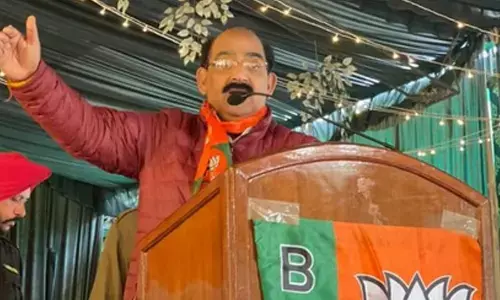Air pollution cuts India's potential grain yields

Air pollution seems to have a direct, negative impact on grain production in India, a study warned on Monday, with recent increases in smog decreasing projected yields by half.
Rome:Air pollution seems to have a direct, negative impact on grain production in India, a study warned on Monday, with recent increases in smog decreasing projected yields by half.

Analysing 30 years of data, scientists developed a statistical model suggesting that air pollution caused wheat yields in densely populated states to be 50% lower than what they could have been in 2010.
Up to 90% of the decrease in potential food production seems linked to smog, made up of black carbon and other pollutants, the study said.
Changes linked to global warming and precipitation levels accounted for the other 10%.
"The numbers are staggering," Jennifer Burney, an author of the study and scientist at the University of California told the Thomson Reuters Foundation.
"We hope our study puts the potential benefits on cleaning up the air on the table," she said, noting that agriculture is often not considered when governments debate the economic costs of air pollution and new legislation aimed at combating it.
The research paper "Recent climate and air pollution impacts on Indian agriculture", published in the Proceedings of National Academy of Sciences, analysed what wheat production could have been if there was less pollution.
Food production in India continues to increase because of new technologies and management techniques.
Scientists examined historical data on crop yields, emissions, and precipitation to draw their conclusions.
The historical research generally confirms what chemists and other scientists have said in past studies about the impact of air pollution on food production.
While tackling global warming requires international action, reducing smog is often a simpler process that can take place at the national level.
"The technologies to fix this problem exist," Burney said. Trucks need better particulate filters for diesel, and the Indian government should help rural residents use cleaner fuels in their cooking stoves, rather than biomass, she said.
"None of these (mitigation techniques) are very high tech," she said, adding that better public policies on clean air could help India meet its goal of reducing hunger to zero.
Next Story










